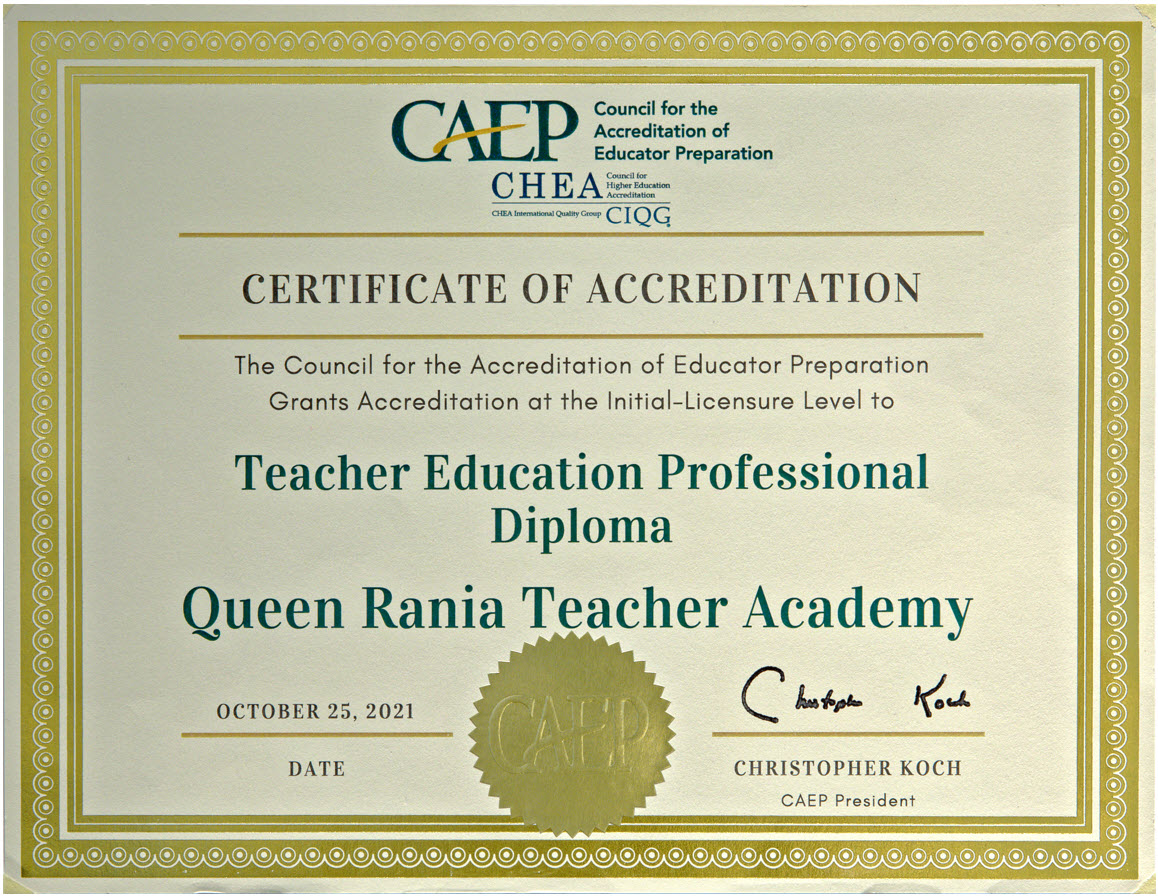In November 2021, the Queen Rania Teacher Academy achieved international accreditation for its Teacher Education Professional Diploma (TEPD) program from the Council for the Accreditation of Educator Preparation (CAEP), fully for seven years meeting all standards without any areas for improvements or stipulations. This ensures that the program is benchmarked with international and national standards, and remain focused on preserving and advancing teacher education, and nurturing the values of teachers.
The Teacher Education Professional Diploma was granted full accreditation of the initial level in November 2021 from the CAEP Accreditation Council. The next CAEP Site Review will be held in the Fall of 2028.
As a component of its application for accreditation to the Council for the Accreditation of Educator Preparation(CAEP), the Queen Rania Teacher Academy (QRTA) is required to provide information related to annual reporting measures on its website. The page demonstrates the required reporting measures data as per CAEP requirements and QRTA's policies and procedures.

There are no standardized measures of completer impact available to the EPP in Jordan. Instead, the EPP addresses the impact of those who have completed its program and who are teaching in schools through the use of case studies, employers evaluations, and completers’ pupils, then used all resources of collected data for data triangulation.
Due to COVID-19 the completers who graduated in 2021 were not hired until September 2021, therefore they have not completed 6 months of employment yet. The data will be reported in the annual report of 2023.
In order to measure the impact of TEPD completers preparation on P-12 student learning and development, a research team from the Monitoring and Evaluation Department (M&E) in coordination with group of clinical educators conducted 15 case studies of completers who were selected randomly from three cycles; four graduates from cycle 1 (2017), five graduates from cycle 2 (2018), and six graduates from cycle 3 (2019) who were from different subjects: Arabic, English, Mathematics, Science and Early grades (EG). The research team conducted 15 completers interviews, 15 interviews with their employers from last academic year (2019/2020), and 14 focus groups with a randomly selected sample of pupils who were taught by the interviewed completers.
The M&E team have used all resources of collected data for data triangulation.
| Cohort | Total Enrolled | Graduated % | Hired in education positions % |
|---|---|---|---|
| 2019-2020 | 992 | 99.6% | 95.6% |
| 2020-2021 | 139 | 100% | 76.97% |
| 2021-2022 | 177 | 98.8% | 33% |
| 2022-2023 | 622 | 86.0% | 92.01% |
| 2023-2024 | 68 | 99.01% | 100% |